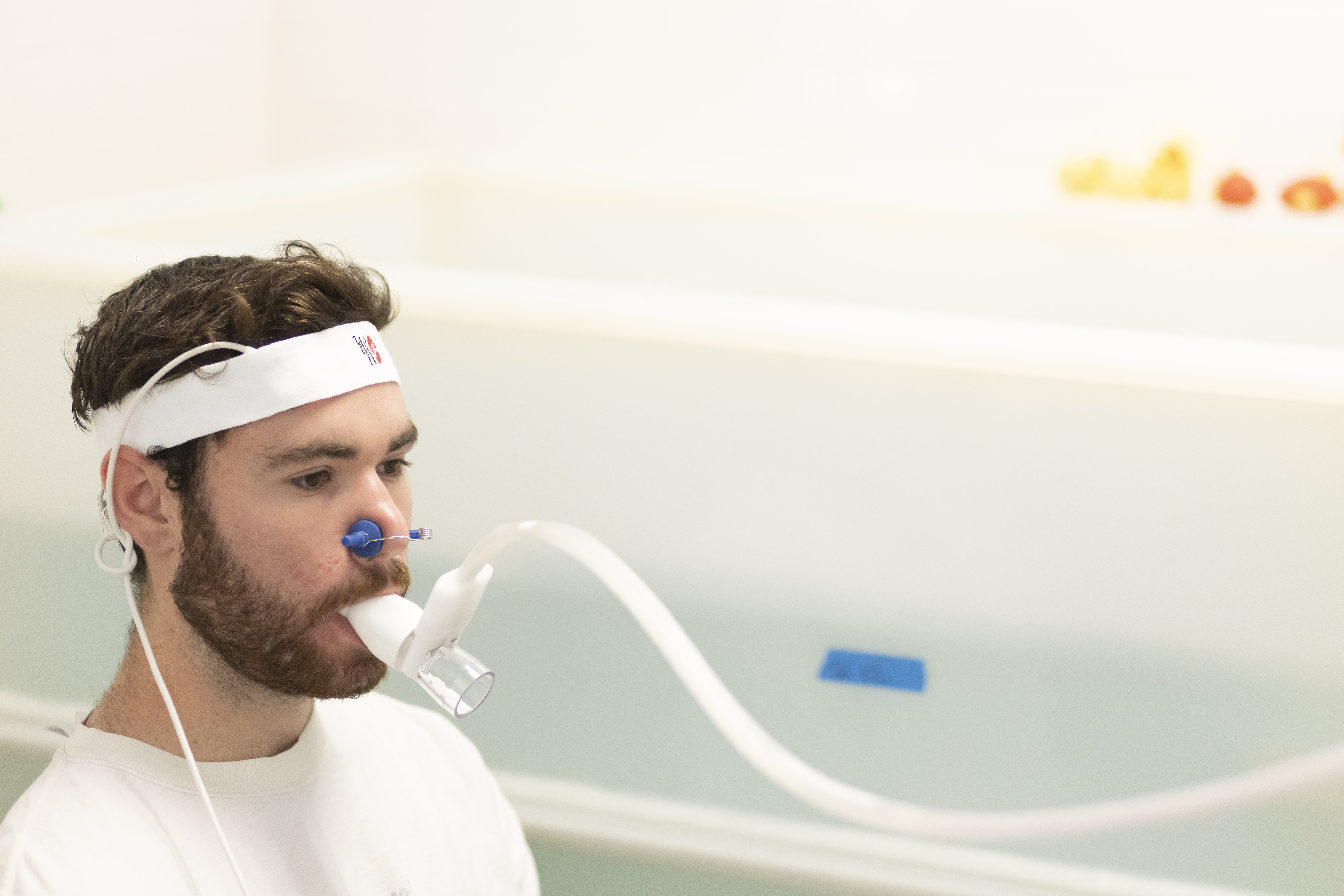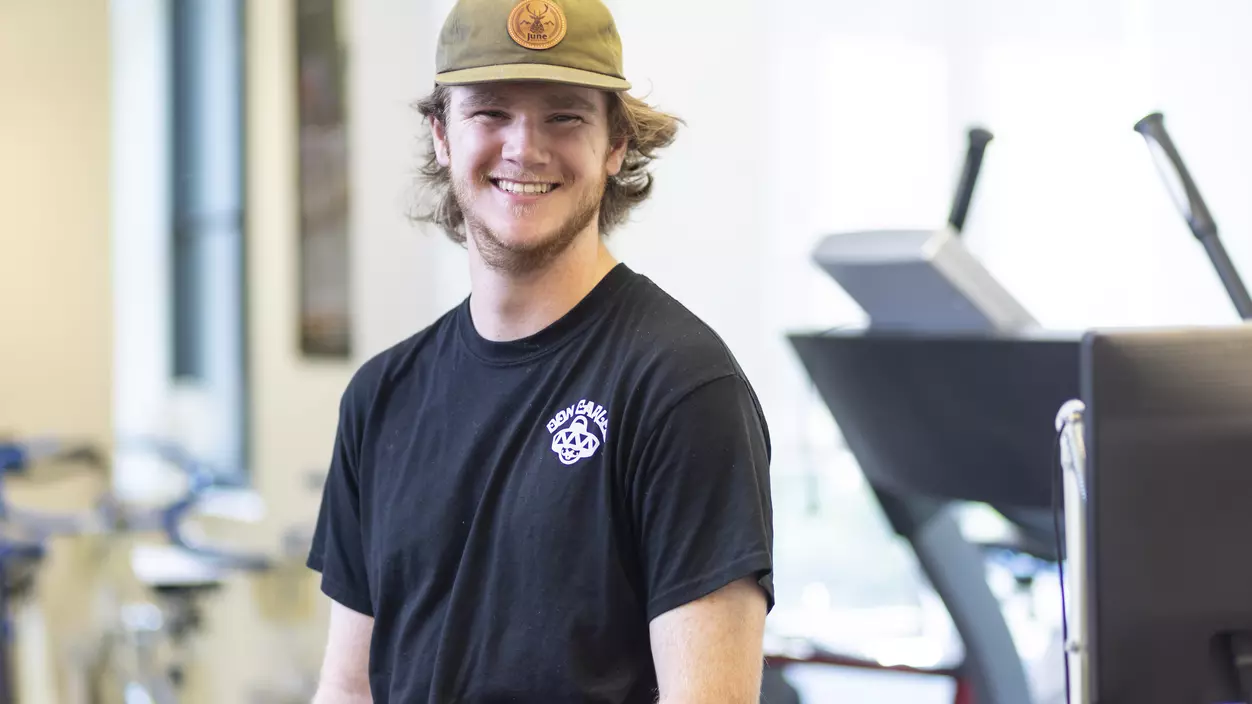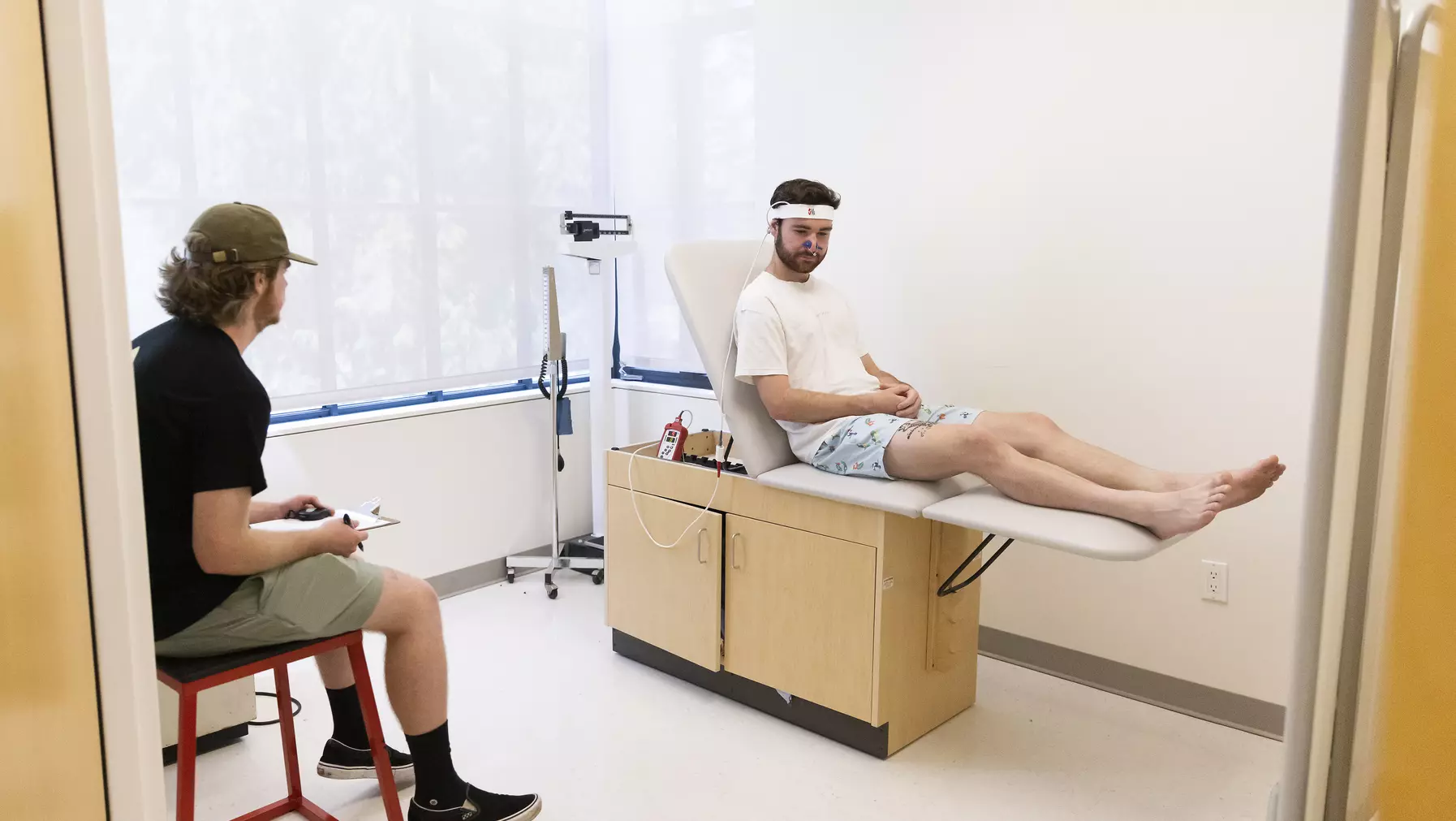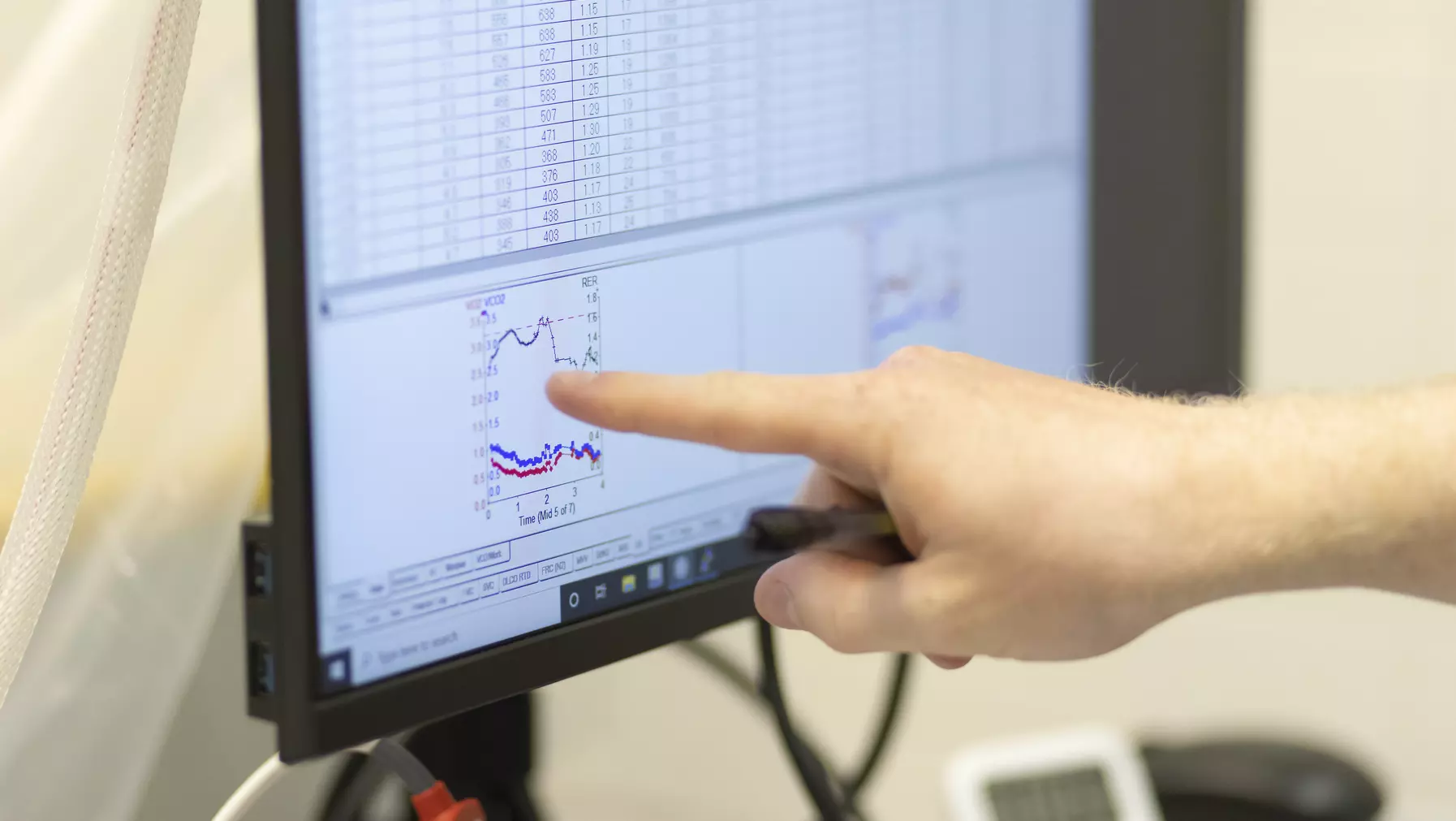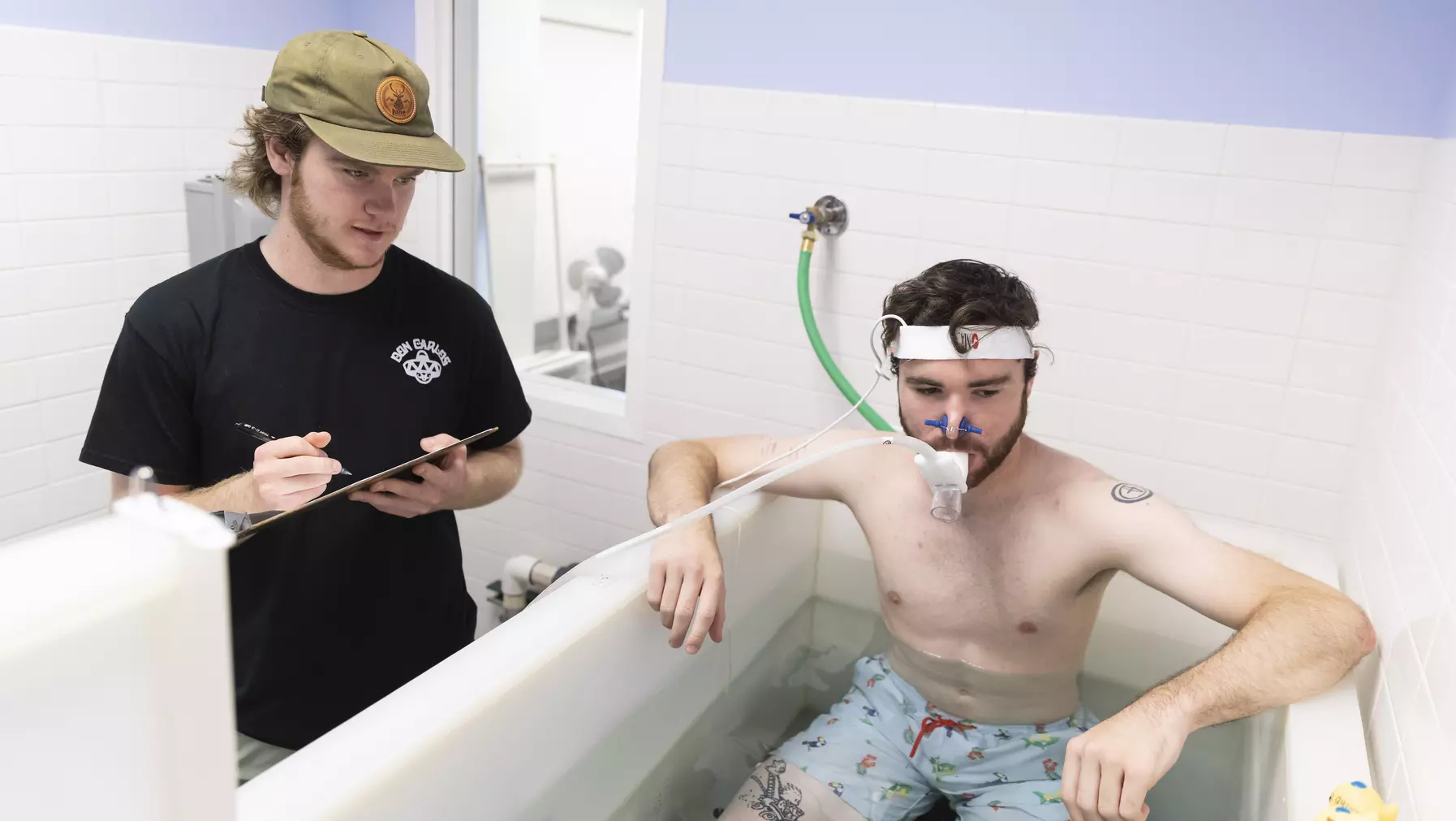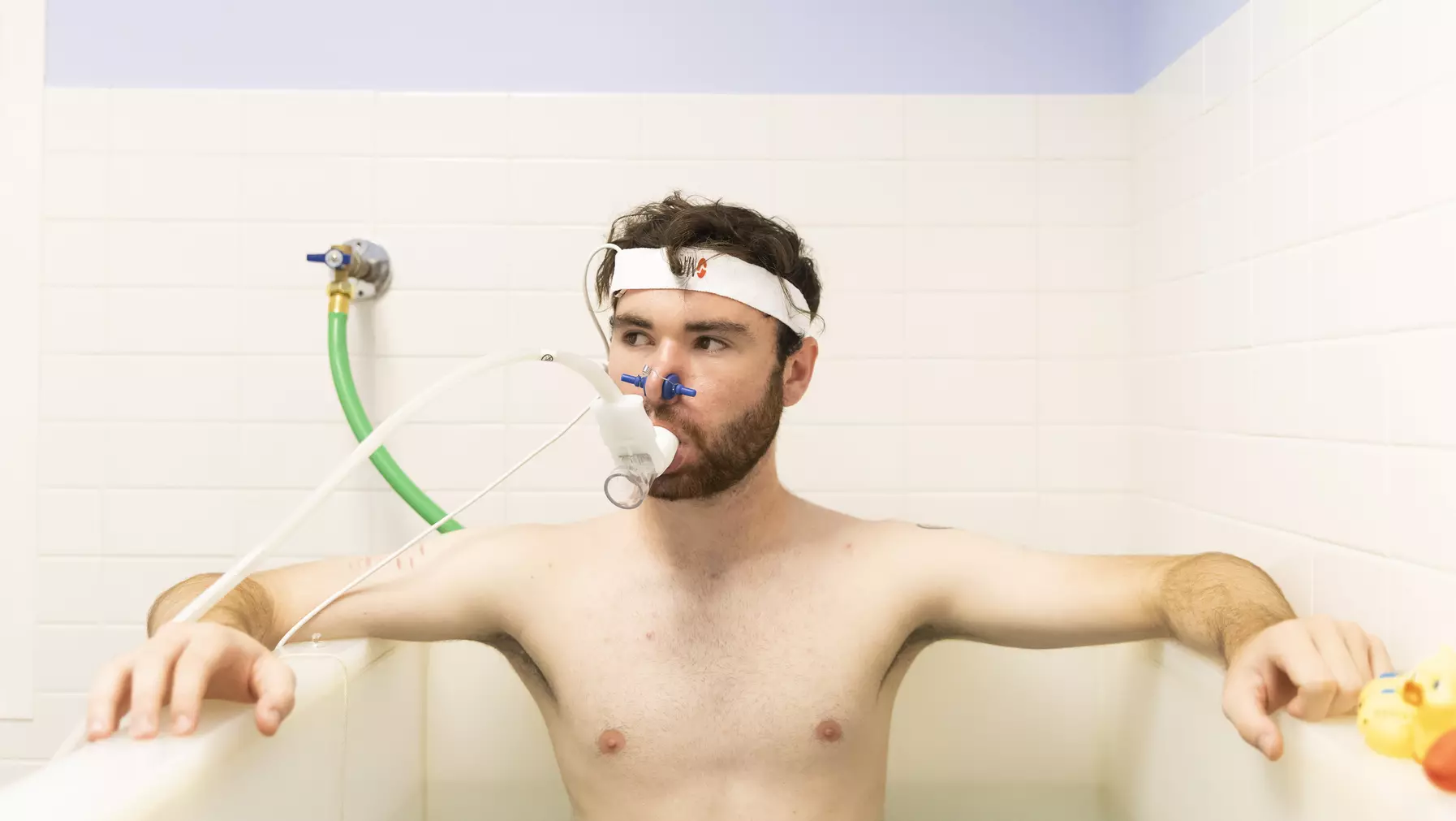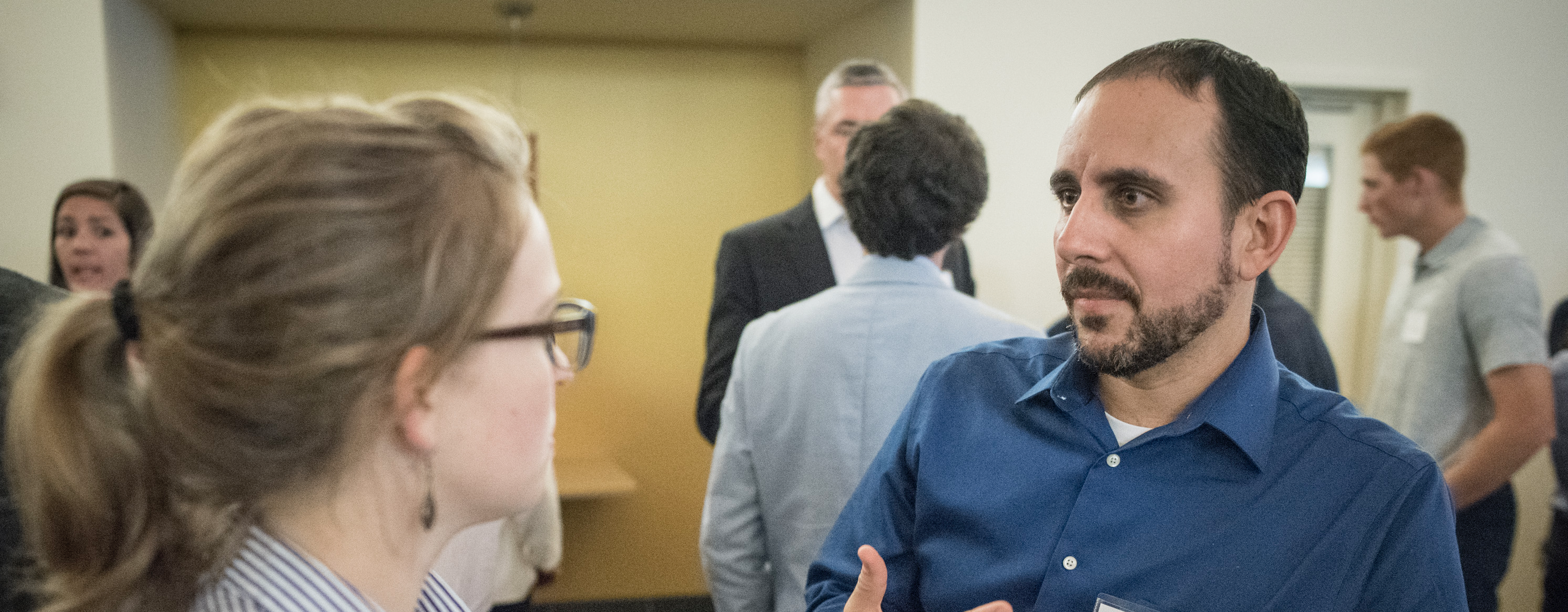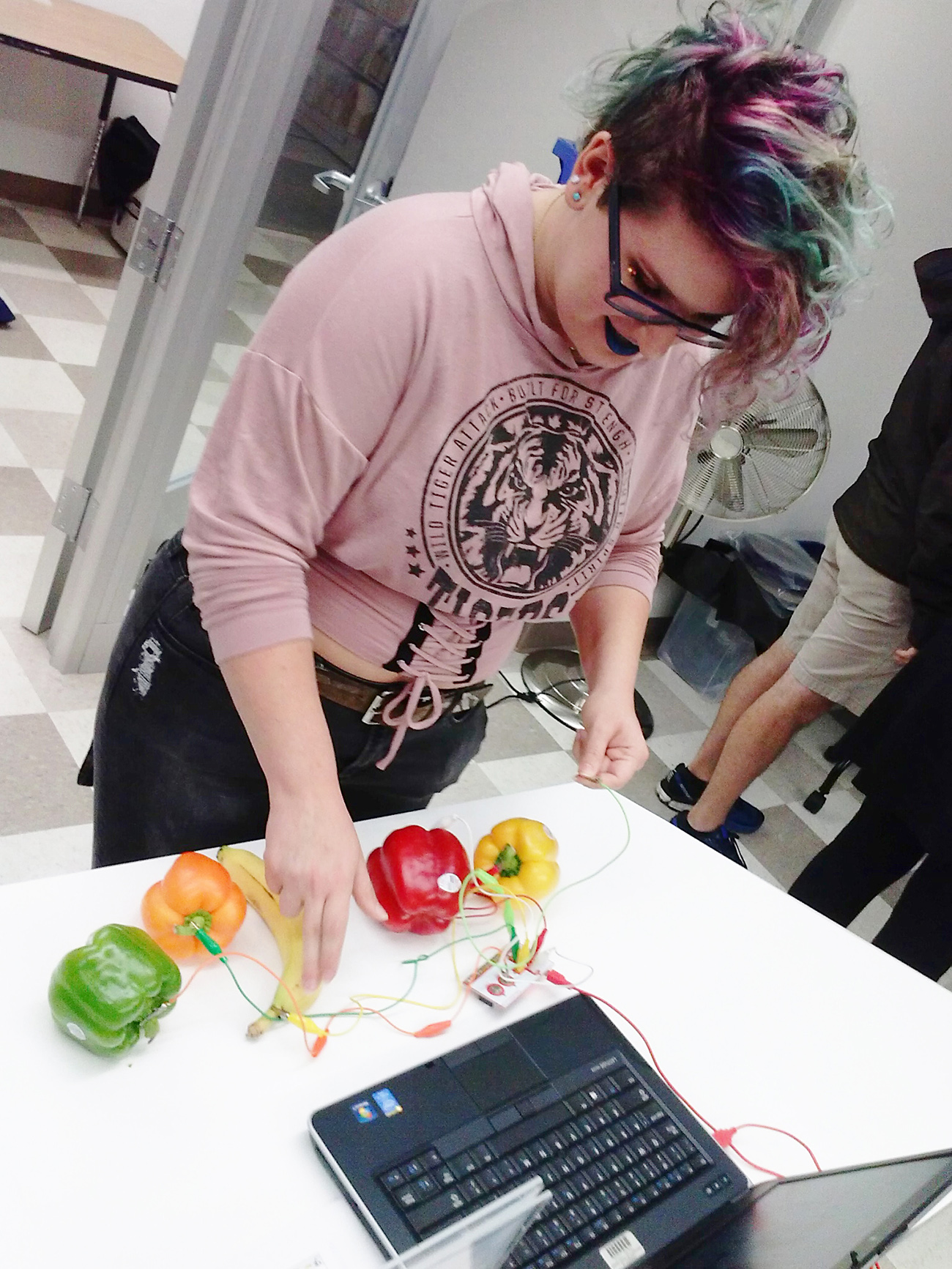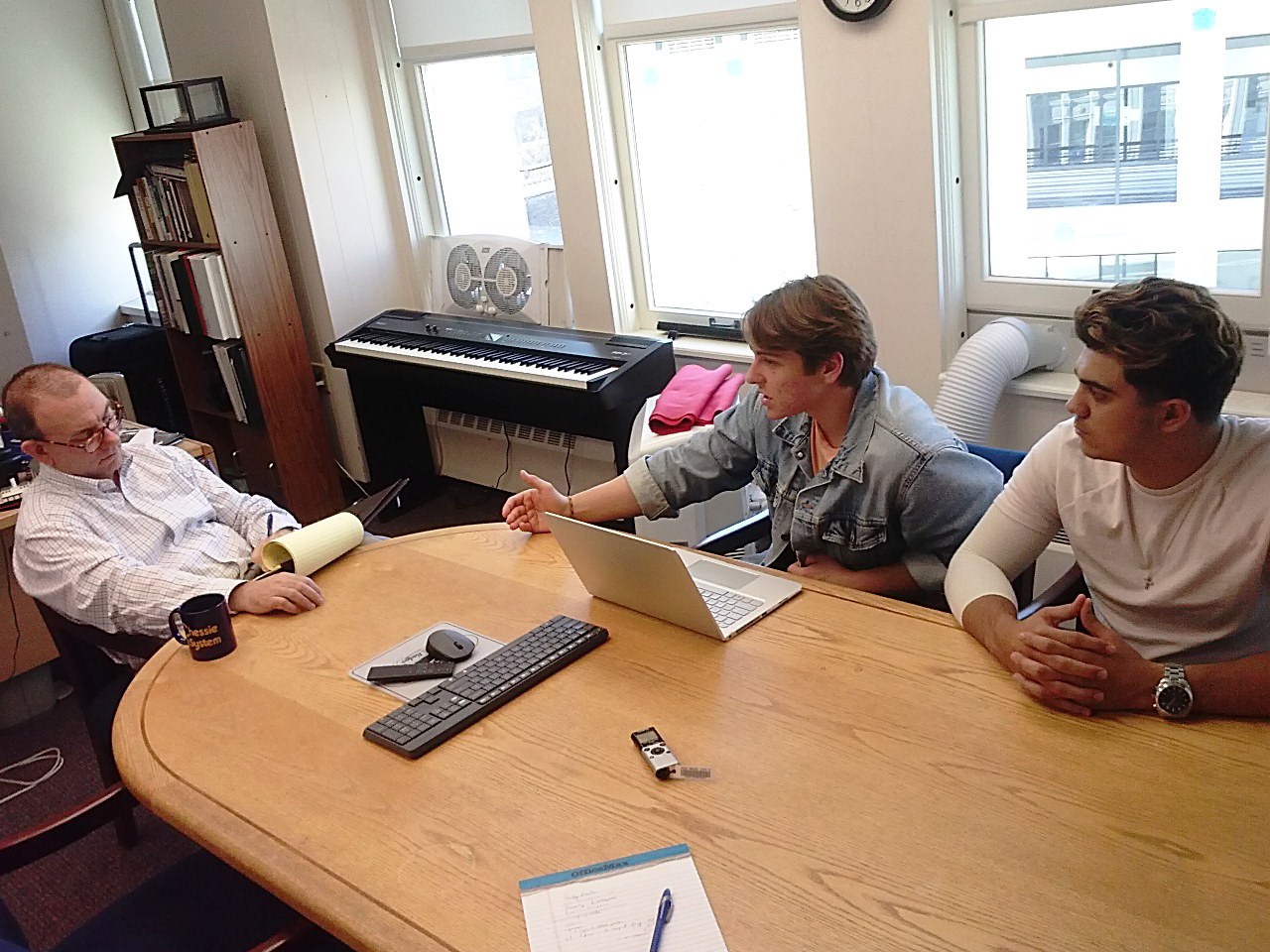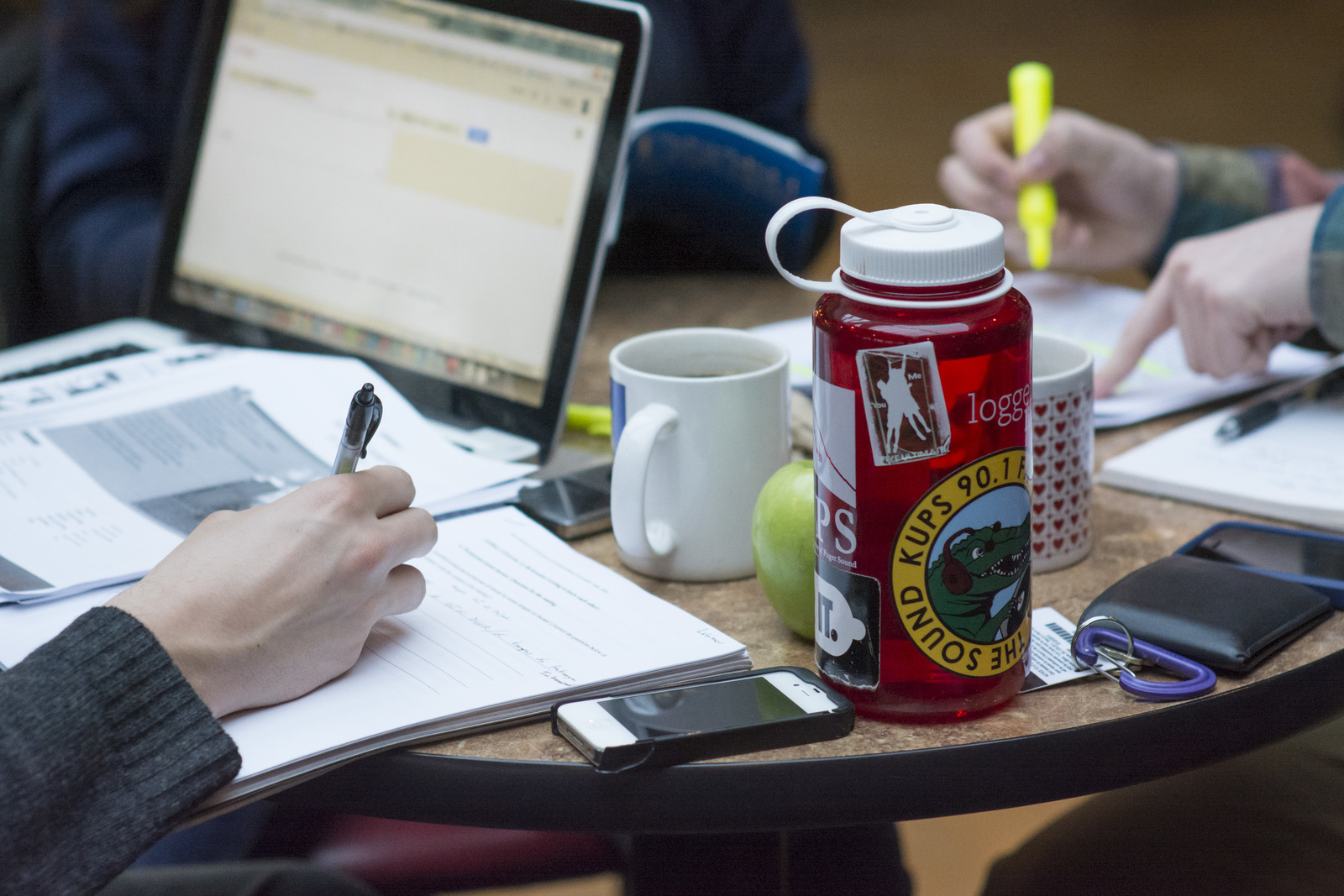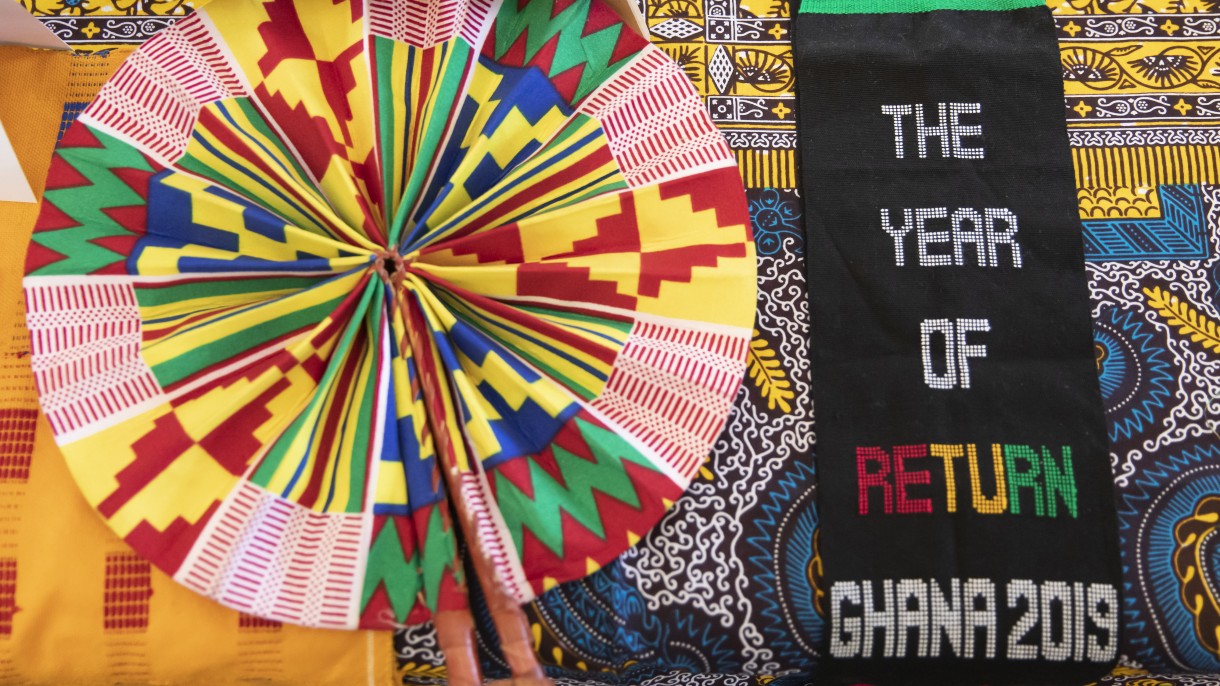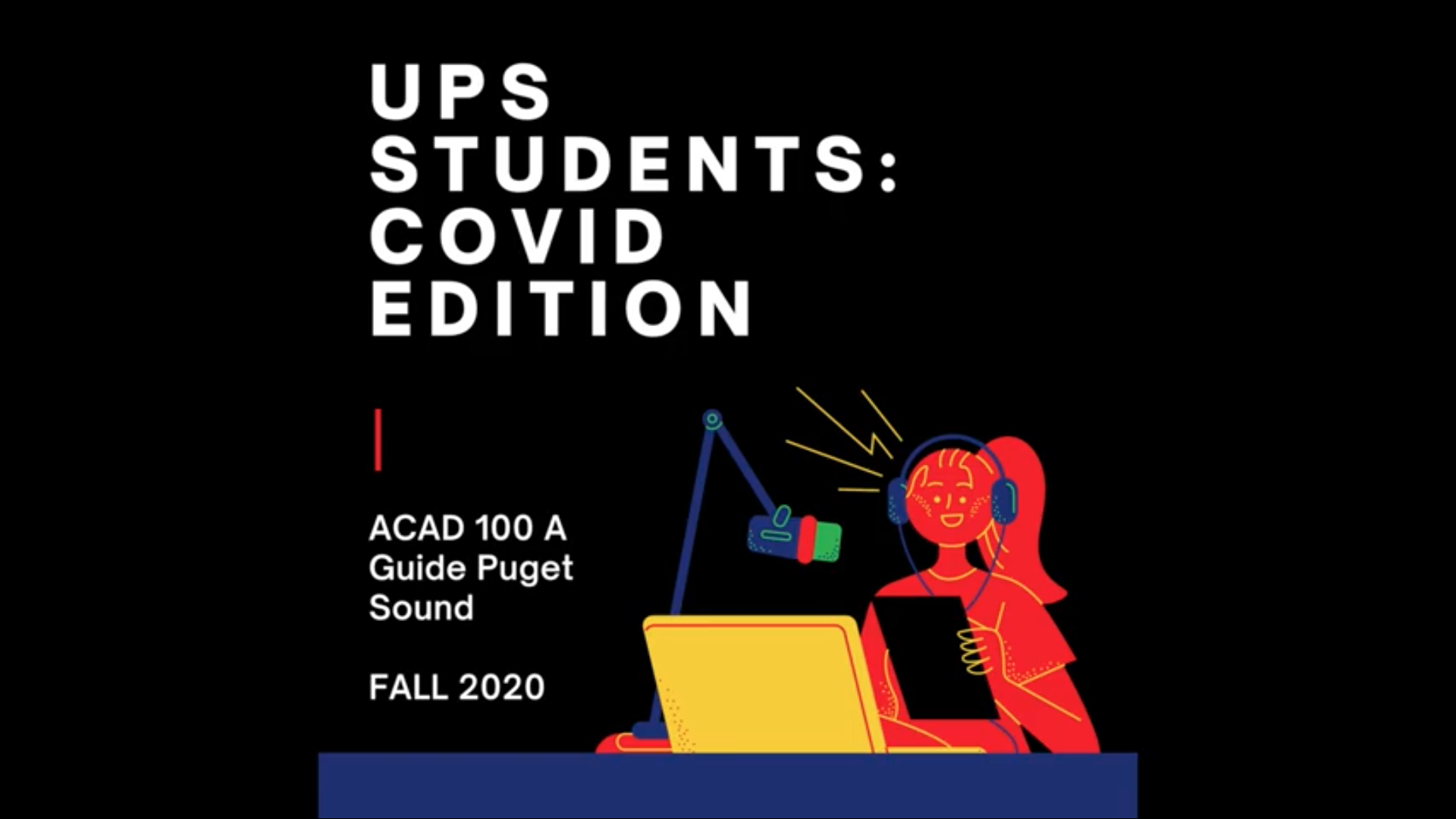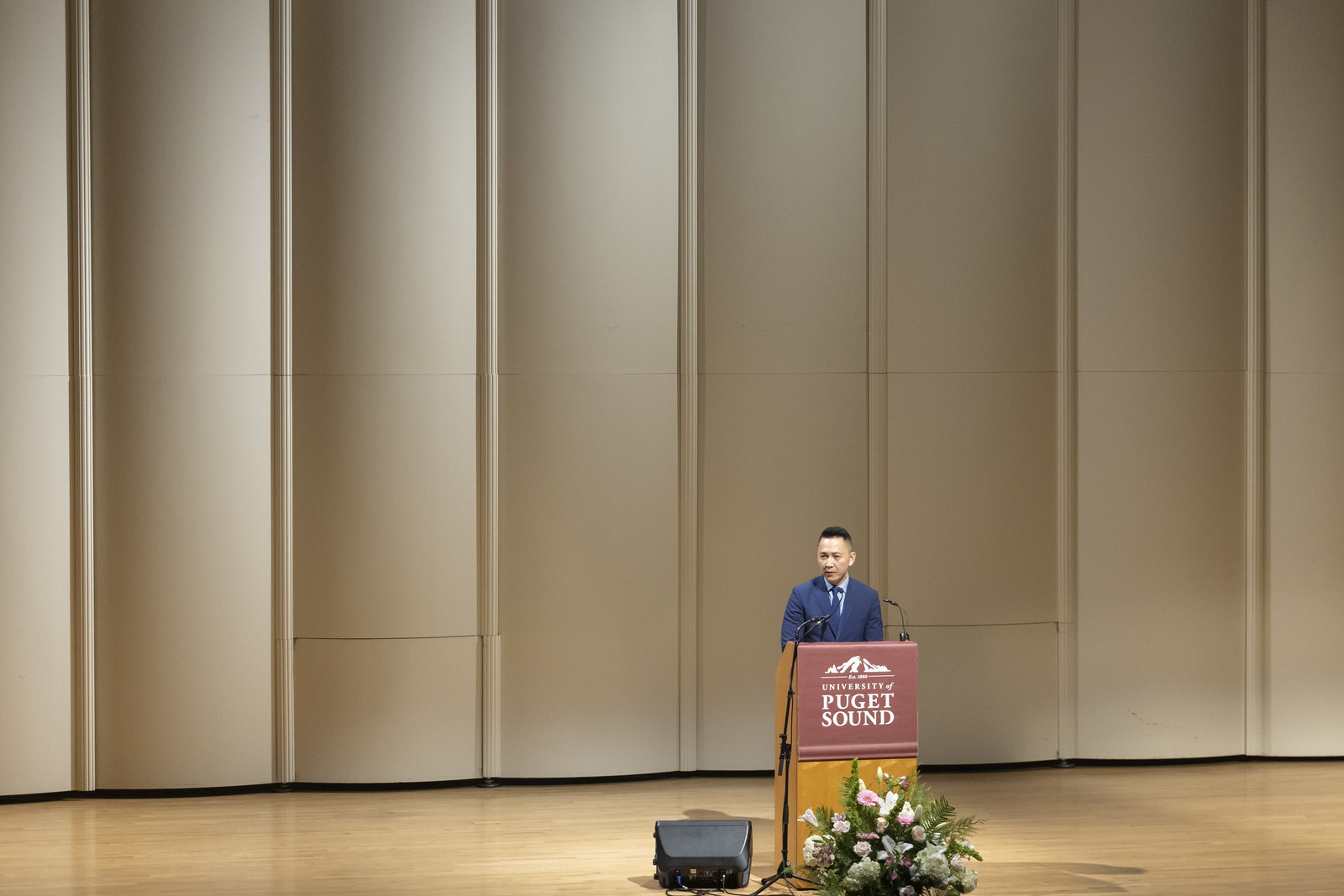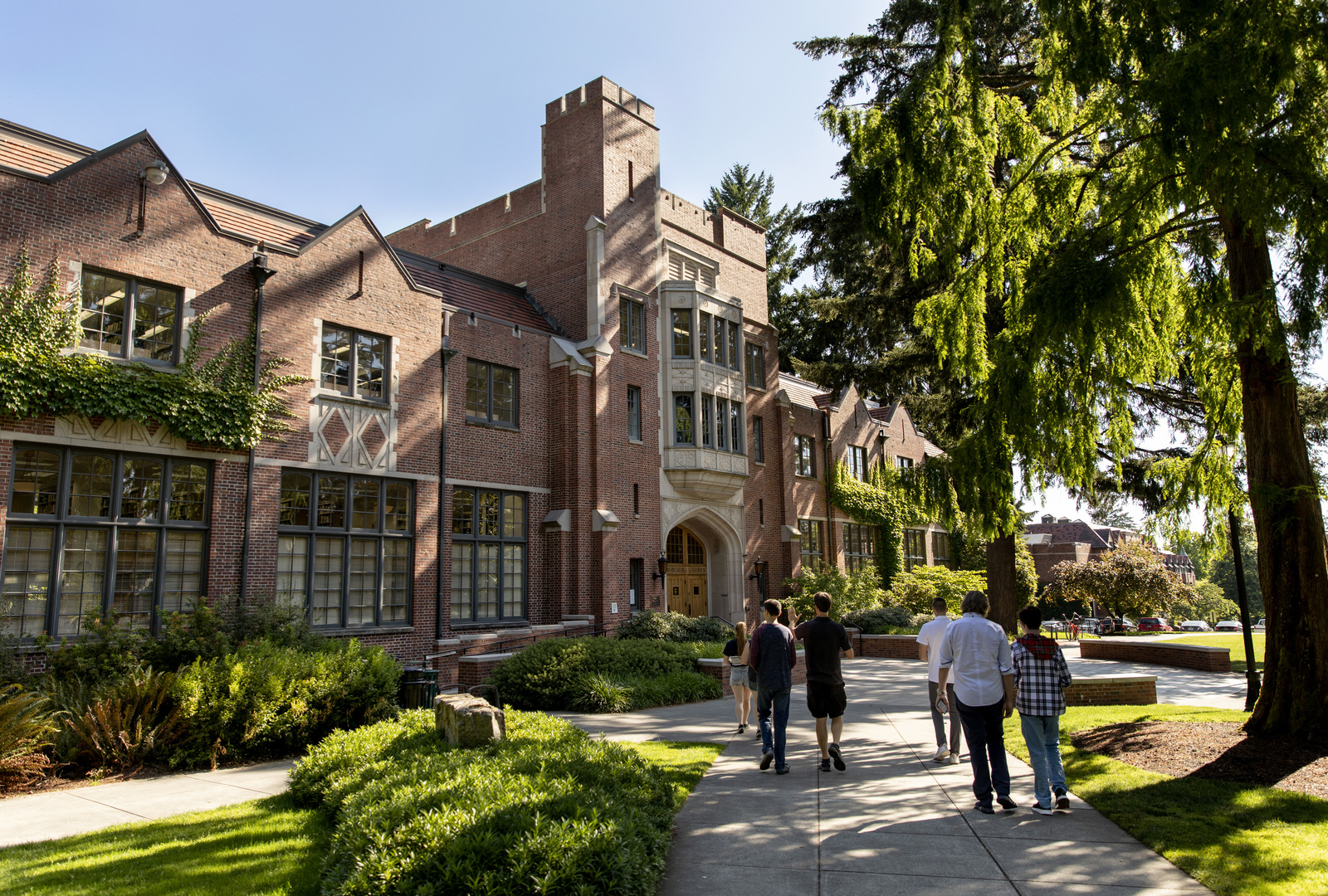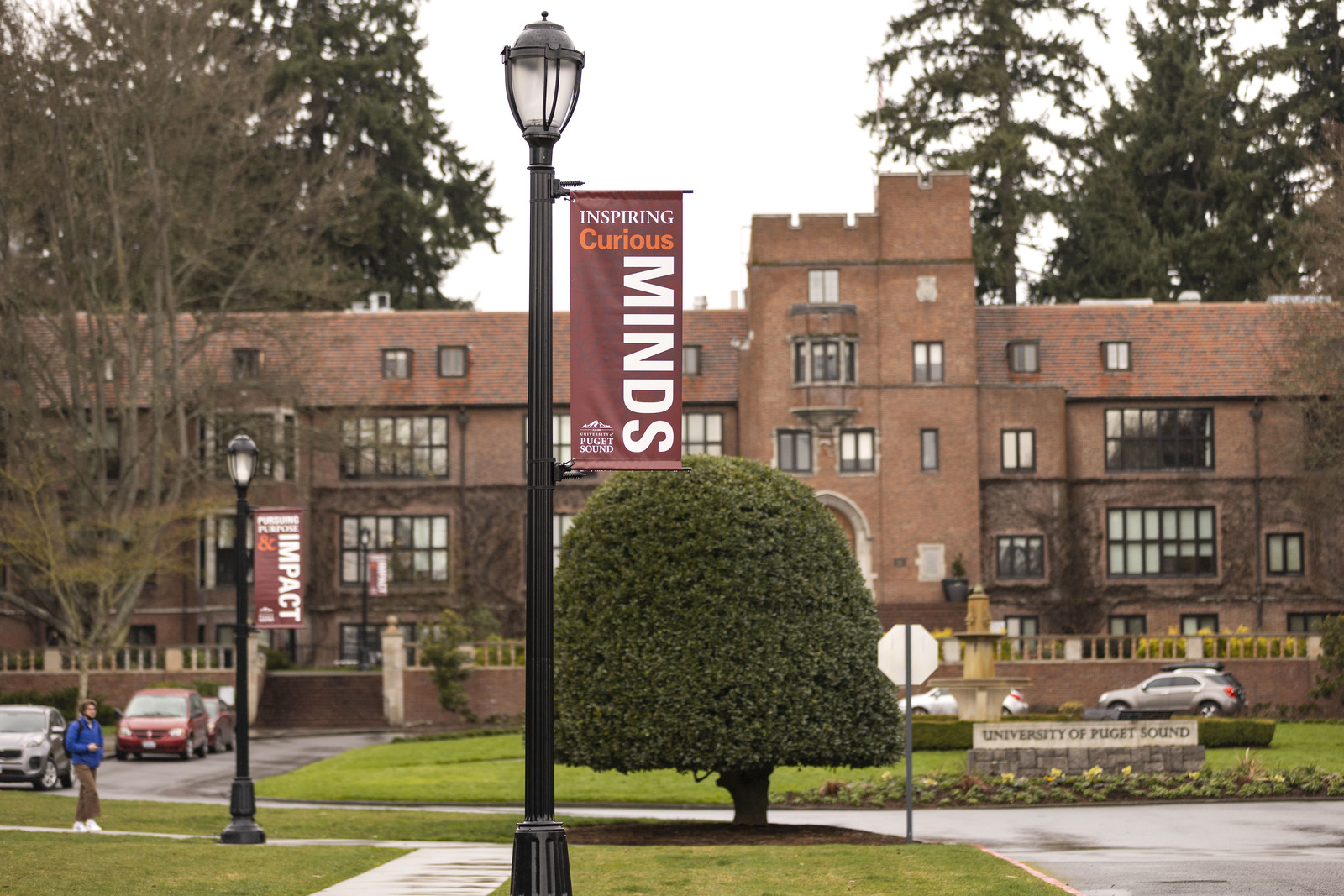Chris Nicol ’24 researches the effect of cold water on the mammalian dive reflex
Chris Nicol ’24 was freediving for lobsters off the coast of San Diego, Calif., when he realized that the cold water was impacting how long he could hold his breath. As an exercise science major with a minor in neuroscience and an emphasis in bioethics at University of Puget Sound, he was intrigued and wanted to know what was causing it. He wanted to know if water temperature was a factor in the strength of the mammalian dive reflex, so he decided to find out.
“When your skin comes in contact with water, it sends a signal to your brain stem, which then sends a signal to the rest of your body to lower your heart rate, lower your cardiac output, and increase your blood pressure,” Nicol says. “That brings more oxygenated blood from your periphery to your core to conserve oxygen so you can survive longer underwater. It's most prominently seen in sea mammals like whales, dolphins, and seals, but all mammals have this reflex.”
